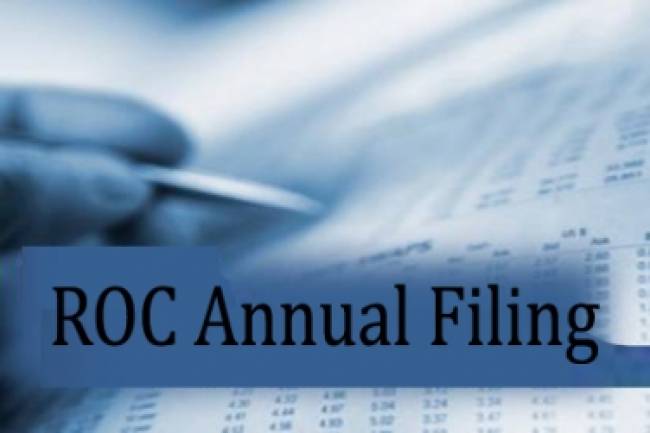
Is Partnership Registration Mandatory?
In India, there is no compelling reason to enlist an organization deed. This is the short answer, as determined under part VII of the Indian Partnership Act, 1932. Be that as it may, as you would expect, it isn't the finish of the point in case you're hoping to begin an organization firm. There are solid motivations to enroll the organization deed, especially on the grounds that unregistered elements have extreme limitations concerning legitimate authorization of the association deed.
Points of interest of Partnership Registration
An organization firm is a standout amongst the most favored methods for beginning a business in India in view of its effortlessness. You just go to a concurrence on different issues of significance (benefit sharing, and so forth) and put it on paper. It is marked and that is it; you're good to go. Presently, enlisting the organization understanding detracts from this effortlessness. All things considered, it has its favorable circumstances. How about we discover what they are.
Can't Sue Firm: An accomplice in an unregistered firm can't document a suit against said firm or his/her accomplices to authorize any rights emerging from the agreement. It additionally incorporates rights gave by the Partnership Act unless the accomplice's name is gone into the Register of Firms as an accomplice in the firm.
Presently, envision that you have put some sum in an unregistered firm, and you might want to pull back from it, or need to scrutinize a suspicious arrangement any of alternate accomplices have made. While you can address them all the same, it is extremely unlikely you can take them to the court, since your firm does not have a substantial understanding. The unregistered understanding that you marked to begin the firm won't be sufficient to record a claim.
Can't Sue Others: An unregistered firm has no capacity to document a suit against an outsider to uphold a privilege emerging from an agreement, unless the firm is enrolled and the people suing are or have been appeared in the Register of Firms as accomplices in the firm.
No Set Off: As a major aspect of an unregistered firm, you, your accomplices or the firm can't guarantee a set-off (this alludes to shared modification of obligations owed) in a debate with an outsider.
Should Be Possible Any Time
For the previously mentioned reasons, associations do like to get enrolled at one point or the other. In this way, indeed, there is no compelling reason to enroll the organization deed when the business is shaped. Under Section 58 of the Act, this should be possible whenever through an application with the Registrar of Firms that has ward where the firm is arranged or proposed to be arranged.
Basic Clauses in Partnership Deed
While the accompanying provisions are basic in each organization deed, each deed isn't the same. Accordingly, you require an altered association deed to ensure your business advantages.
Benefit sharing proviso: This demonstrates how the accomplices in the firm will partition benefits and ingest misfortunes, regardless of whether similarly or unequally. One accomplice may be a working accomplice, wherein he or she has not added to the underlying capital, and subsequently, will take a lesser or a level of benefit, while the others may have put in more capital and, in this manner, may get more. A point by point record can be placed in the statement, to back out lawful issues at a later stage.
Capital commitment condition: It expresses the measure of capital brought into the firm by each accomplice, what it be utilized for and whether the capital will be reimbursed on leaving the firm. Here once more, the capitals should be characterized totally against the name of each accomplice, with the fundamental uses that will be finished with it. On the off chance that it is an equivalent capital association, a similar will be said.
Debate determination proviso: It might express that any legitimate question will be settled through intervention or mediation. One can put in whatever number provisos under this as could be allowed (since everything should be pre-decided or pre-ruminated) to make it lawfully authoritative.
Retirement/Termination proviso: It expresses the conditions that should be satisfied for the end of an accomplice, the retirement age and the outcomes of either. In the event of end, the condition ought to show what and how an accomplice will be ended (unlawful exchanges, acting against the deed, et cetera.) Also, if a man needs to escape the association, what is required to be done, if the capital will be returned, et cetera.
What is a Partnership?
An organization firm is a famous type of business constitution for organizations that are possessed, overseen and controlled by an Association of People for benefit. Organization firms are generally simple to begin and mainstream among little and medium measured organizations in the disorderly areas.
Favorable circumstances of Partnership
Simple to Start
A Partnership is anything but difficult to frame as no lumbering lawful customs are included. Its enrollment is additionally not fundamental. In any case, if the firm isn't enlisted, it will be denied of certain legitimate advantages. The Registrar of Firms is in charge of enrolling organization firms.
Business Name
Since the name of a Partnership firm isn't enlisted, a Partnership firm can have any name – as long as it doesn't encroach on an enrolled trademark. Notwithstanding, since the name isn't enlisted, some other individual can likewise utilize a similar business name unless trademark enrollment is acquired.
Yearly Filing NOT Required
A Partnership firm isn't required to record its yearly records with the Registrar every year not at all like a Limited Liability Partnership or Company. Constrained Liability Partnership's and Company's are required to record their yearly records with Registrar of Companies every year.
Visit HireCA.com Now



















